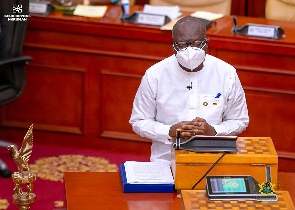The 2023 budget and economic policy must prioritise economic stability and recovery, with local solutions at the centre, says the Ghana National Chamber of Commerce and Industry (GNCCI) and the Association of Ghana Industries (AGI).
While calling for a review of what they described as not-too-business-friendly taxes – like the benchmark policy on imported products and electronic levy (E-levy), among others – they said the budget should outline practical measures to bring predictability to the business environment while inspiring confidence in the economy so as to boost recovery.
“The persistent and current issues facing the economy require deliberate attention on pursuing home-grown policies. In this regard, the GNCCI strongly urges government to provide more support to value addition, local content optimisation, export development, trading of domestic products and services, and efficient competition laws – which are sustainable tools needed to manage exchange rate and inflation stability and achieve macroeconomic prudence,” the Chamber said in a statement to the B&FT.
The budget, it noted, must indicate steps to improve efficiency with regard to public investment and cut wasteful spending. In particular, it said, an improved fiscal space is needed to scale-up growth-enhancing spending and efficiently manage the wage bill, as well as review the size of government as cost-saving measures.
“Overall, appropriate extensive fiscal, monetary and financial market measures should be implemented toward cushioning businesses and households in these critical times. This will curb the over-reliance on monetary policy to control inflation and cedi-depreciation, which is clearly not working and further compounds the current challenges,” the statement added.
Specifically, the GNCCI proposes that government should work with multinational companies operating in our offshore oil and gas sector to keep about 30 percent of their revenues with local banks.
Meanwhile, the Chamber says local content policies for the mining companies should be reviewed to prioritise local suppliers.
This, along with a 30 percent domestic gold purchasing programme by the Bank of Ghana, the GNCCI said, are among its budget expectations since they have potential to shore-up the country’s foreign currency reserves and further strengthen the domestic currency.
“We are in tough times, and this calls for timely and proactive measures to mitigate the associated impact and enable businesses and industries to build resilience. The current economic crisis necessitates some stringent measures to improve the business environment for economic growth and development,” it further stated.
Review tax on raw materials, benchmark values
For the AGI, while the budget must set the tone for economic recovery amid the current economic crisis, policies like the 5 percent tax on imports of raw materials and the benchmark values, which subsidise imported products at the expense of local alternatives, should be reversed by the budget.
“We are glad today, that as part of the roll-out plan government has pledged to us, by close of the year such policies will be reversed to bring about harmony. So, we expect that the benchmark policy will be reversed in the budget so our production base can be competitive,” said AGI president, Humphrey Ayim-Darke.
Similarly, Raphael Aryeetey, AGI’s Treasurer, said the 5 percent tax on raw materials which are brought in before processing is counterproductive and therefore should be reviewed.
“With reference to our discussion with President Akufo-Addo a couple weeks ago, we believe those taxes will be taken care of – and that will ease doing business, particularly manufacturing.
“When manufacturers can predict what the exchange rate will be for the next couple of months, then they can plan in an informed manner. But most importantly, when we talk about manufacturing I don’t think we should limit it to a spoon or car. We also need to consider what we consume on a daily basis. So, our expectations are that the budget will a chart way for us to prioritise local production of most things we consume on a daily basis,” he reiterated.
Click to view details



Business News of Wednesday, 23 November 2022
Source: thebftonline.com

















